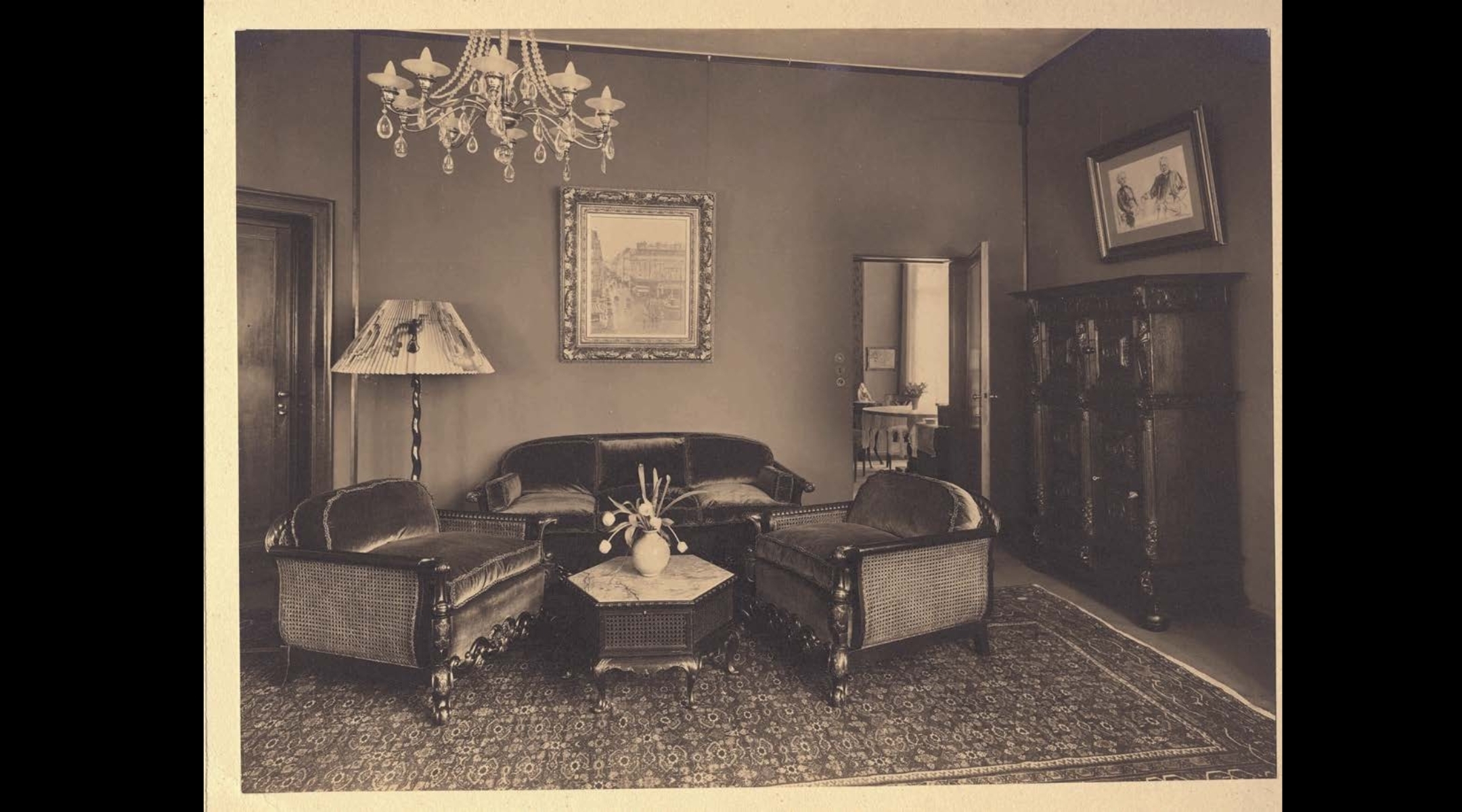US court rules Madrid museum can keep Pissarro painting looted by the Nazis
The decision is a setback for one of the longest-running Holocaust arts restitution cases in history

“Rue Saint-Honoré in the Afternoon, Effect of Rain” by Camille Pissarro hangs in Lilly Neubauer’s home in Berlin. (Image via court records)
(JTA) — A United States appeals court ruled Tuesday that a Madrid museum may keep a painting that had been looted by the Nazis from a Jewish woman and has been sought after by her descendants since 2005.
The provenance of Pissarro’s 1897 oil painting “Rue Saint-Honoré in the Afternoon, Effect of Rain” is one of the longest-running Holocaust arts restitution cases in history.
Tuesday’s ruling had nothing to do with whether the Nazis stole the painting, but whether Spanish or California law applied in the dispute. It is also a departure from a recent spate of victories by victims of the Holocaust whose property was looted by the Nazis and whose descendants have sought to reclaim their family’s stolen assets.
The Pissaro painting was owned by Lilly Cassirer, born Neubauer, in 1939, who was forced to sell it for 900 Reichsmarks, or about $360 at the time, in order to obtain an exit visa for England. The money was deposited into a bank account that she was not allowed to access.
In 1958, Neubauer made a claim against the new German Federal Republic and reached a settlement for the stolen painting, accepting a compensation of about $250,000. Today, the painting is estimated to be worth tens of millions of dollars. Neubauer died in 1966.
The painting made its way around the world over the decades, from a private collection in St. Louis to Beverly Hills and then to a New York gallery, where Swiss art collector Baron Hans Heinrich Thyssen-Bornemisza, the heir to a German steel fortune, purchased it. For a while, Thyssen-Bornemisza kept the painting in Switzerland before eventually selling it to the Kingdom of Spain in 1993, which established a foundation and a museum from his art collection.
Upon learning the location of the painting, Neubauer’s sole heir, her grandson Claude Cassirer, sued for its return in 2005. He died five years later, and now his son David, his daughter Ava’s estate and the Jewish Federation of San Diego County are handling the case.
Circuit Judge Carlos Bea said Tuesday that Spain’s concern with granting “certainty of title” took precedence over California’s preference for discouraging theft and recovering stolen art for victims who live there. He specifically cited that the Museo Thyssen had “in good faith” owned and displayed the painting for three years before the Cassirers brought forth a lawsuit challenging its provenance, which, according to Spanish law, means the museum is the rightful owner.
In her concurring opinion, Circuit Judge Consuelo Callahan said that Spain should have voluntarily relinquished the painting.
“Sometimes our oaths of office and an appreciation of our proper roles as appellate judges require that we concur in a result at odds with our moral compass,” she wrote. “For me, this is such a situation.”
The lawyers for the Cassirer family believe the ruling was incorrect, and said they would seek a review of the decision.
“Among the important issues, the court’s decision fails to explain how Spain has any interest in applying its laws to launder ownership of the spoils of war, a practice outlawed in the Hague Convention of 1907, and a series of other international agreements joined by Spain for over a century,” they said in a joint statement. “Nor does it explain how a national museum owned by the Spanish government justifies holding onto a painting that it knows was looted by the Nazis from a Jewish family in the Holocaust.”
“The Cassirers believe that, especially in light of the explosion of antisemitism in this country and around the world today, they must challenge Spain’s continuing insistence on harboring Nazi looted art,” the lawyers added. “This decision also gives a green light to looters around the world.”
Thaddeus Stauber, a lawyer representing the Museo Thyssen, called the ruling “a welcome conclusion to this case.”
This article originally appeared on JTA.org.















